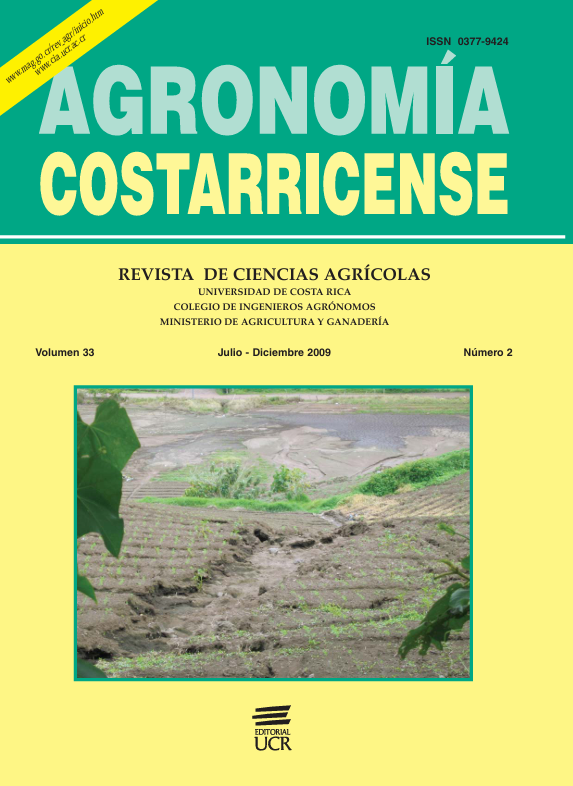Abstract
For over 40 years, the Colegio de Ingenieros Agrónomos de Costa Rica has made an important contribution to the development of the Costa Rican model of Agricultural Regencies, which is reflected, at national level, in aspects such as legislation, training, implementation, follow-up and inspection of the process. The analysis of the system of the “Agricultural Costa Rican Regency” represents an excellent opportunity to examine and understand not only the process that carried out by the Colegio de Ingenieros Agrónomos de Costa Rica, but also the technical figure of the Regent, who is in charge of verifying that the commercial activities of the establishments subjected to regency abide by the current legal norms in their relations with society. In the Costa Rican Regency system, there are 791 companies registered, grouped in 7 regency categories. They provide employment to 533 professionals, on whom the technical responsibilities of the managed company relay. Agricultural Regencies in Costa Rica correspond to a model consolidated throughout the time, which is improvable, and willing to be spread to other countries of the area, for them to take it as guide that, adapted to their needs, serve to correct technical and legal emptiness in the agricultural local activity. Therefore the Colegio de Ingenieros Agrónomos de Costa Rica offers to the regional area its experience of more than 4 decades in the implementation of the system.
##plugins.facebook.comentarios##

This work is licensed under a Creative Commons Attribution-NonCommercial-NoDerivatives 4.0 International License.
Copyright (c) 2016 Agronomía Costarricense


